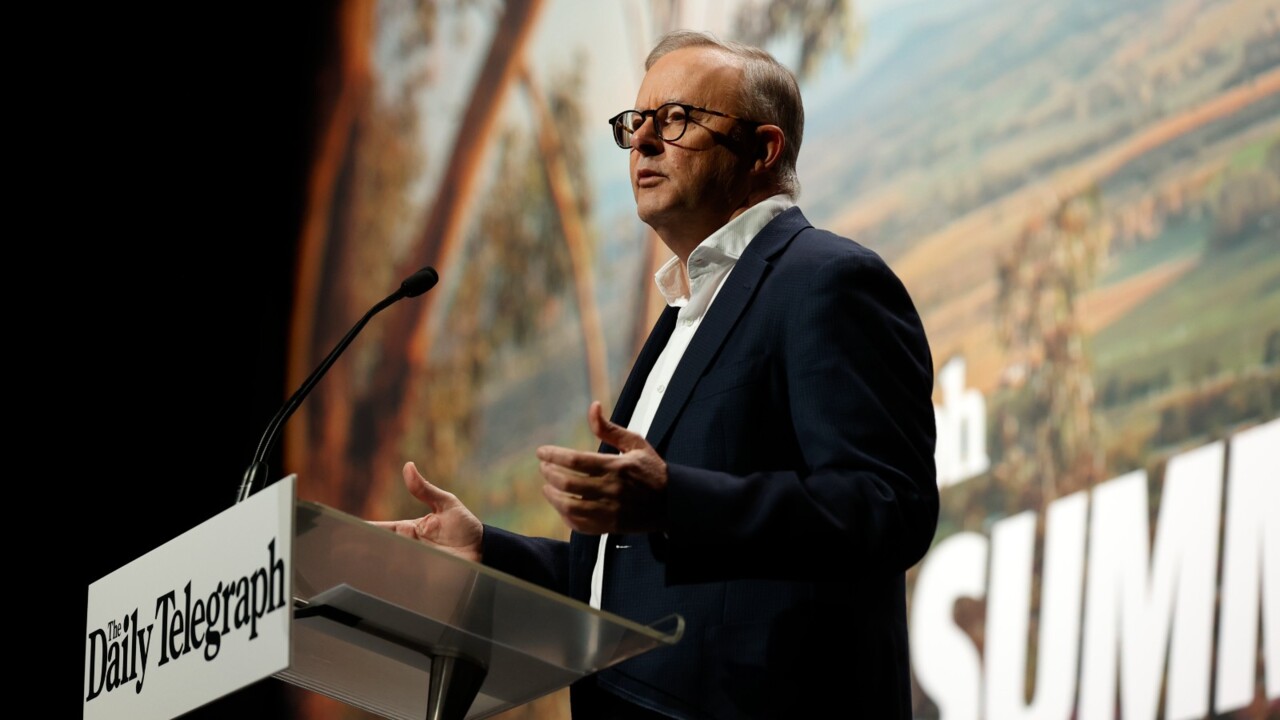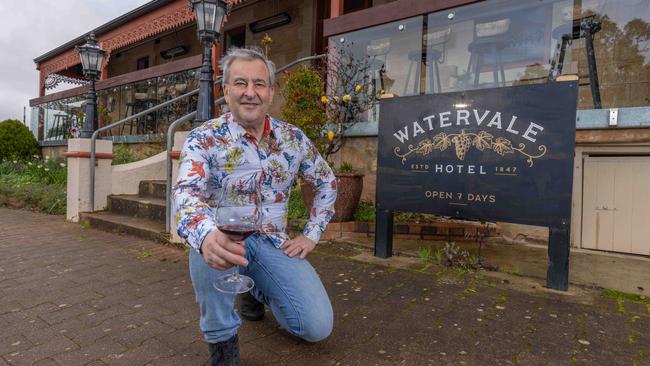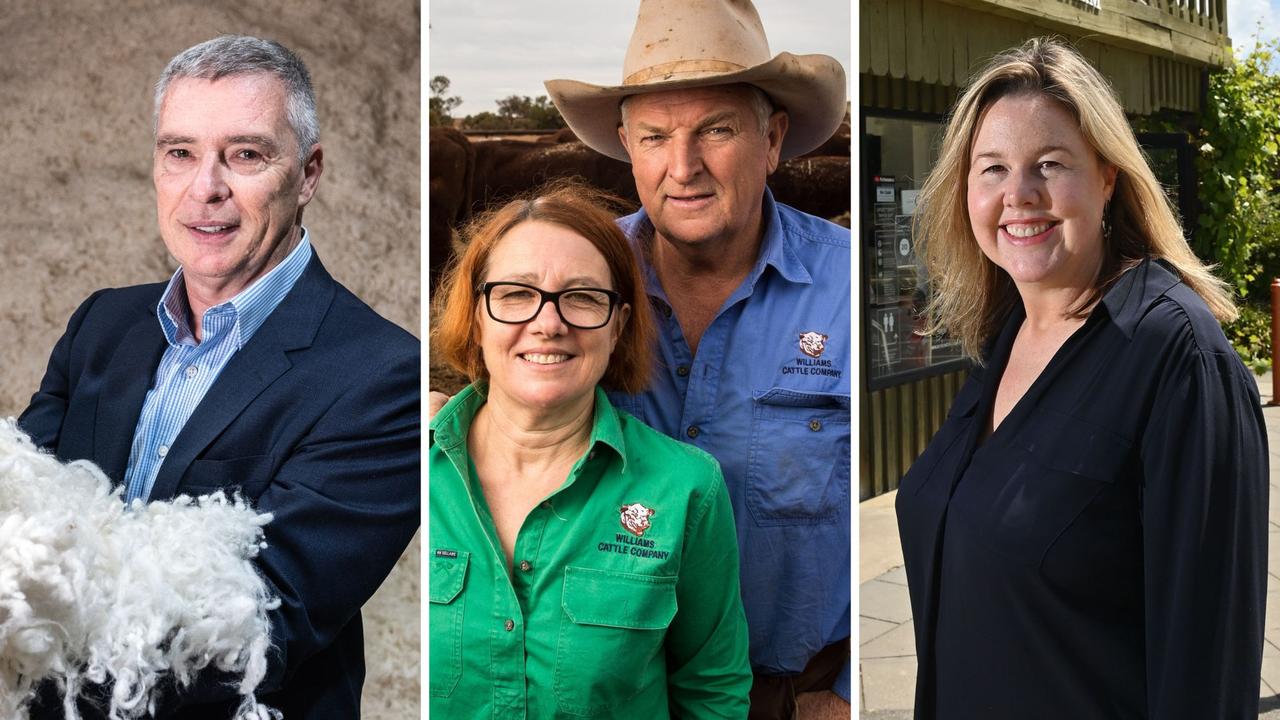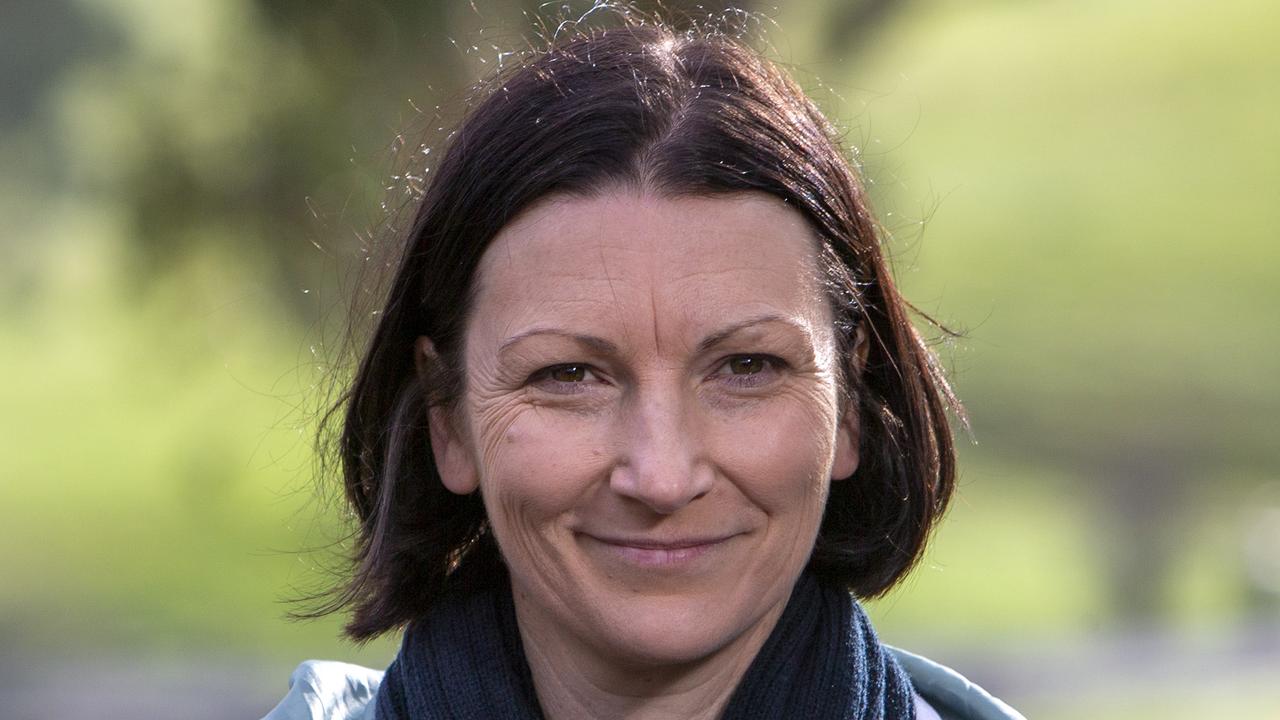Watervale Hotel owners Warrick Duthy and Nicola Palmer’s ideas to further boost regional tourism market
The hotel has been transformed from a quaint country pub to an award-winning tourist drawcard. Now, its forward-thinking owners have new ideas to grow the industry.

Bush Summit
Don't miss out on the headlines from Bush Summit. Followed categories will be added to My News.
Warrick Duthy and Nicola Palmer offer visitors cool drinks and three Es – ethical epicurean experiences.
Mr Duthy, the “poetic licensee and sommelier” of the historic Watervale Hotel in the Clare Valley also is keen to establish a dining and driving route in the region, noting many guests are on a weekend trip but others are on their way to the Flinders Ranges and beyond.
“Often they are not sure of what else to see on the way,” he said, quickly reeling off a list of places to linger longer.
“You could have a road route from Adelaide where you stop every half-hour and enjoy life instead of rushing to get somewhere.”
Mr Duthy, who will sit on a panel at Tuesday’s SA Bush Summit discussing tourism and trade, firmly believes many travellers stopping in at the award-winning hotel want an experience rather than just a meal.
He believes there is a lack of luxury accommodation in our state’s most desirable destinations and is encouraging a more constructive and progressive approach with a growth mindset.
Mr Duthy is more than happy to serve up “chips and a Coopers” in the front bar but he and wife Ms Palmer – the Restaurant and Catering SA reigning chef of the year – have plenty more to offer.

They proudly source their produce locally including from their own organic and biodynamic farm, and minimise waste including putting it back into their own farm soil for nutrients.
It is all part of the “ethical” in ethical epicurean experiences.
“We are about giving people an entire experience they remember long after they have gone,” he said.
These experiences include staying on the family property in rustic 1860s Penobscot Farm Cottage, touring the farm to see the produce growing, checking the kitchen to see the food prepared then a degustation dinner with matching Clare Valley wines in a master tasting class.
The full top end experience costs somewhat more than a Pale Ale and front bar chips, but would be memorable.
“Travellers want experiences and we want to give them the ethical epicurean experience they will savour for a long time,” Mr Duthy said.

As well as degustations and a la carte choice, the hotel has the “Fires of Hell”.
The beer garden has a huge wood fired oven and the “Fires of Hell” Argentinian asado style BBQ where chefs dramatically cook with fire and embers on grills, cast iron plate, iron crucifix, rotisserie, between coals, hanging above embers on hooks and chains, or slow baked in the embers themselves.
Executive chef Ms Palmer, formerly head chef and restaurant manager of nearby Skillogalee Winery Restaurant, also is a qualified jeweller who led the hotel’s interior and exterior design changes.
“We are taking great pleasure in recreating amazing dishes of the world using the spectacular range of produce we have grown at Penobscot Farm or sourced in our region,” she said. “For those who cannot decide what they want to eat, you can leave it to me.”
Regions lead the way for tourism
By Brad Crouch

Regional tourism has rebounded from the darkest days of the pandemic with Tourism Research Australia data for the year ending March 2023 showing record-high visitor spending of $4.47bn, up 25 per cent on the pre-Covid year to December 2019.
The state’s diverse regions are a powerhouse for the tourism economy and visitor spending has already shot past the $4bn target which was set for December 2025.
Six of the state’s 11 tourism regions have surpassed their 2025 visitor expenditure target: Barossa, Clare Valley, Eyre Peninsula, Fleurieu Peninsula, Murray River Lakes and Coorong, and Yorke Peninsula.
Four regions hit record-high visitor expenditure: Adelaide Hills, Barossa, Flinders Ranges and Outback, and Yorke Peninsula.

Tourism Minister Zoe Bettison said regional tourism is a huge contributor to South Australia’s visitor economy.
“With data over the 12 months in 2022 showing six of the 11 regions already surpassed their targets set for 2025, and four regions cracked an all-time high – these are fantastic indicators that our plan to recover the industry from the impacts of the pandemic is on track,” she said.
“The South Australian Regional Visitor Strategy 2025 sees the sector working together to continue to drive this strong progress for our state.”
The spending targets are set as part of the South Australian Regional Visitor Strategy 2025 which outlines priority action areas as identified by the state’s 11 tourism regions after consultation with more than 800 stakeholders.

It aligns with the South Australian Visitor Economy Sector Plan 2030, which sets a target for total visitor expenditure in the state of $12.8bn.
SA Regional Visitor Strategy Steering Committee chairwoman Helen Edwards said “there’s no doubt we’ve made fantastic inroads for regional tourism.”
“The results reflect the support from many South Australians who visited our regions during the pandemic,” she said.
“As a strategy developed ‘by the regions for the regions’, the Regional Visitor Strategy is our road map to continue to drive outcomes for regional tourism and keep the industry strong for the tens of thousands it employs.”



